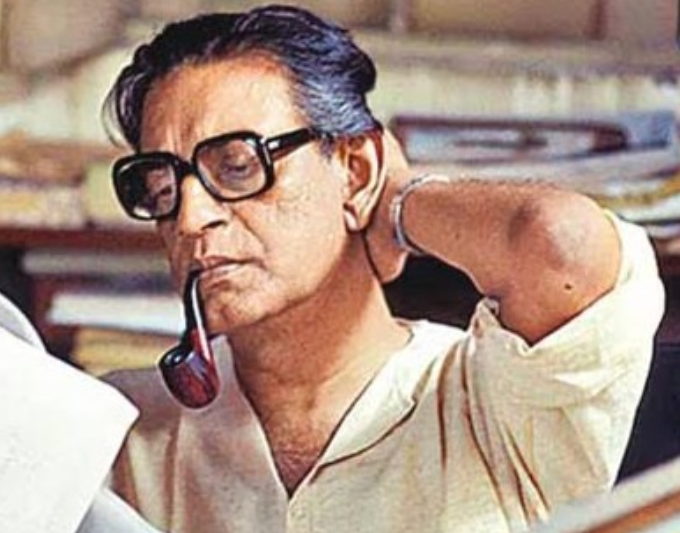Mumbai— A resurfaced video of legendary filmmaker Satyajit Ray has renewed debate over long-standing allegations that his unmade screenplay The Alien was plagiarised and later emerged as the Hollywood blockbuster ‘E.T. the Extra-Terrestrial’.
In the clip, Ray recounts how his science fiction script — developed years before Steven Spielberg’s film — was nearly produced in the U.S. before the project collapsed under suspicious circumstances.
“Long before E.T., my science fiction screenplay was germinated from that story,” Ray says in the video. “I wrote a science fiction story called The Alien, full screenplay, which was supposed to be financed by Columbia. That is why I spent five weeks in Hollywood… It’s only that I had a person who was working as a middleman, who behaved peculiarly, and the idea had to be dropped.”
Ray’s screenplay featured a benevolent extraterrestrial befriending a rural boy — a premise many observers have argued bears striking similarities to the 1982 Hollywood classic.
A Visionary Whose Influence Reached Far Beyond India
Satyajit Ray, regarded as one of the greatest filmmakers in world cinema, left an indelible mark with works celebrated for their humanism, subtle emotional power, and visual precision. Born in Kolkata into a culturally prominent family, Ray’s artistic formation was shaped by literature, music, and the teachings of Visva-Bharati University.
His breakthrough film, ‘Pather Panchali’, made with limited resources and non-professional actors, won international acclaim, including at Cannes. It launched the landmark Apu Trilogy, which charted a boy’s growth from rural Bengal to adulthood and established Ray as a global auteur.
Ray’s filmography eventually grew to more than 30 films, including Charulata, Mahanagar, Jalsaghar, Goopy Gyne Bagha Byne, and Shatranj ke Khilari. Beyond directing, he was also an illustrator, writer, designer, and composer — often creating his own scores, typography, and poster art.
His lifetime achievements earned him numerous honors, including India’s highest civilian award, the Bharat Ratna, and an Honorary Oscar in 1992.
A Debate That Still Resurfaces
While Ray never pursued legal action, his remarks about The Alien and its collapsed Hollywood deal have periodically rekindled discussion over the origins of E.T. The resurfaced video once again spotlights the unrealized project and the filmmaker’s belief that his idea was appropriated.
Ray’s legacy, however, remains defined not by controversy but by his pioneering contributions to world cinema — contributions that continue to inspire filmmakers decades after his passing.














